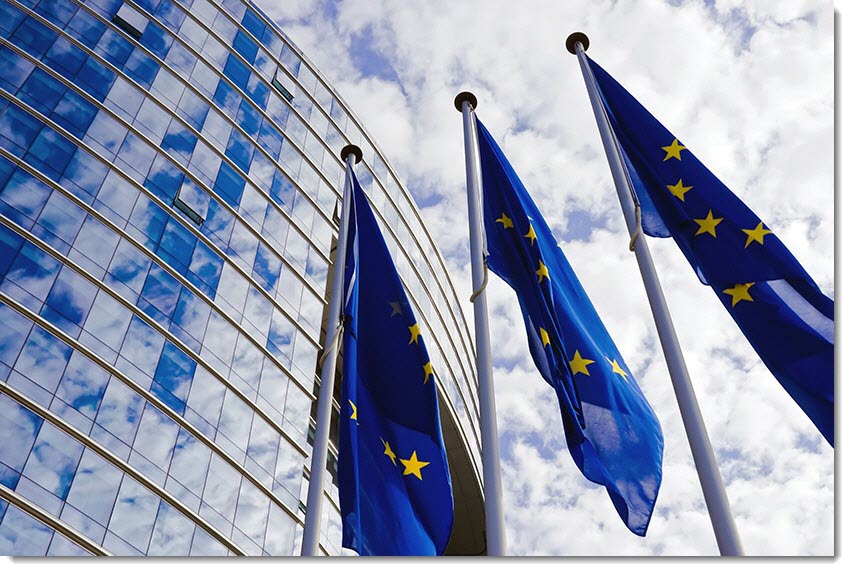
15/01/2024
EU Insight, 12 January 2024
Brussels, 12 January 2024
BELGIUM TAKES OVER LAST COUNCIL PRESIDENCY BEFORE THE EU ELECTIONS
With the turn of the year, Belgium took over the Presidency of the Council of the European Union, which will run for the first half of 2024. Thematically, the Belgian Presidency will be guided by six priorities, (i) the rule of law, democracy, and unity, (ii) strengthening the EU’s competitiveness, (iii) the green and just transition, (iv) reinforcing the EU’s social and health agenda, (v) protecting people and borders, and (vi) promoting a global Europe. Notably, as the last Presidency before the EU elections in June, Belgium will be tasked with finalising as many ongoing legislative negotiations as possible, ahead of the European Parliament dismantling in late April, in anticipation of the elections.
COUNCIL AGREES TO SUPPORT UKRAINE AND NEW TECH INVESTMENTS
Member States reached agreements over two contentious elements within the ongoing mid-term review of the EU’s 2021-2027 Multiannual Financial Framework. To note, the Framework dictates the allocation of the EU’s Budget over seven years. During the ongoing revisions, the Council agreed on the creation of a new financial aid mechanism named the Ukraine Facility, as well as on the Strategic Technologies for Europe Platform. The former sets aside a portion of the EU Budget to support Ukraine’s recovery efforts from the war while helping finance its reforms for EU accession. The latter aims to foster investment in new digital, clean, and biotechnologies across the EU.
NEW CYBERSECURITY AND DATA REGULATIONS MARK A NEW DIGITAL ERA IN THE EU
Two key pieces of legislation driving forward the EU’s ambitions within the digital transition entered into force in the new year. The EU’s Cybersecurity Regulation establishes requirements for entities to set up an internal framework to internally manage and control cybersecurity risk. It also creates the Interinstitutional Cybersecurity Board to support the implementation of the Regulation. The second initiative, known as the Data Act, aims to improve access to and the governance over data in the EU. Concretely, the Regulation introduces provisions to facilitate the sharing of data, while introducing harmonised rules on the fair access, use and protection of data, while ensuring user rights.
COUNCIL OPENS DOORS FOR BULGARIA AND ROMANIA’S SCHENGEN ACCESSION
Member states unanimously agreed to remove internal border controls for air and maritime travel from Bulgaria and Romania into the Schengen area, effective as of 31 March 2024. This decision will allow the free movement of citizens, by air and water, between the two countries and the rest of the Schengen area and marks a first step towards the Member states’ full accession into the Schengen area. Notably, despite a recommendation from the Commission to also lift internal land border controls, the Council’s decision strikes a balance between those Member States pushing for further EU integration, and those fearing uncontrolled internal migration. Nevertheless, discussions on the removal of internal land borders will continue in 2024.
EU POLITICANS COMMEMORATE PASSING OF JACQUES DOLORES AND WOLFGANG SCHAUBLE
The passing of Jacques Delors, the former Commission President, marked the start of the EU institutions’ work in 2024. Commission president Ursula Von der Leyen praised his leading role in the development of the internal market, the Erasmus programme, the inception of the euro as the EU’s single currency, as well as his drive towards stronger EU integration. Next week’s European Parliament Plenary will also dedicate time to commemorate Mr Delors. His passing followed the passing of former German finance minister Wolfgang Schäuble, whose death was also commemorated by prominent European politicians.
COMING UP NEXT WEEK
- 15 – 18 January: European Parliament Plenary Session in Strasbourg. On the agenda: Belgian Presidency activities, EU Budget, Jacques Delors, Plastic pollution
- 15 January: Eurogroup. On the agenda: International Monetary Fund’s mission to the euro area, 2024 recommendations, EU competitiveness, Eurogroup Work Programme
- 15 – 16 January: Informal meeting of environment ministers. On the agenda: Circular economy, just transition, adaption, and resilience
- 16 January: Economic and Financial Affairs Council. On the agenda: Belgian Presidency work programme, European Semester 2024, Conflict in Ukraine, Financial Services, G20
- 16 January: College of Commissioners. On the agenda: Revision of the European Works Council Directive
Karl Isaksson, Managing Partner Brussels, Kreab
_________________________________________________________
Kreab • Tel: +32 2 737 6900 • karl.isaksson@kreab.com • www.kreab.com/brussels • Twitter: @KreabEU.
